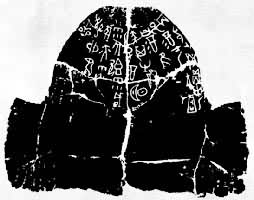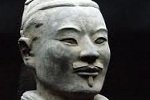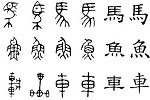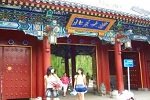Chinese Beliefs: Ancient and Modern Chinese Polytheism
Home ![]() Chinese Culture
Chinese Culture ![]() Chinese Beliefs
Chinese Beliefs
Continued from previous page: Chinese Religions: Ancient Chinese Believed In Afterlife
Augur
Because of the belief of an afterlife, augurs or fortune tellers existed as intermediaries in ancient China religion.
Augurs asked questions of the gods or spirits on behalf of the humans who needed their skills. They used various techniques of divination, such as fire and oracle bones, to find the answers.
The common questions an augur would ask were concerns about the future, such as how the harvest would turn out, who should be in an important position or who was going to win a battle. It's up to the augur's expertise to interpret the patterns on the bones or other divination tools to discern the answer from gods, spirits or one's ancestors.
Their recordings on the bones or shells were the first written Chinese characters that have been found.
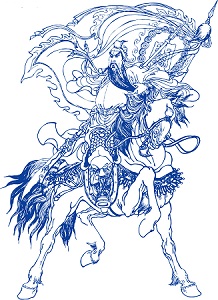 Besides various gods, ancestors and the Tian as mentioned on this Ancient China Religion page, early Chinese people also worshipped the capable or the nobles who had contributed to the people in one way or the other. When these people died, they were worshipped as gods. Their statues or pictures were displayed on shrines to be the subject of worship.
Besides various gods, ancestors and the Tian as mentioned on this Ancient China Religion page, early Chinese people also worshipped the capable or the nobles who had contributed to the people in one way or the other. When these people died, they were worshipped as gods. Their statues or pictures were displayed on shrines to be the subject of worship.
This custom is still kept by many today. You might have seen the shrines of Guangong (picture at left), a well known lengedary Chinese warrior and a beloved character in the Three Kingdoms by Luo Guanzhong, at the entrances of many Chinese restaurants.
And you must know about Chinese fireworks, yet do you know that the person Li Tian, who invented the fire crackers, was made a god in his hometown in Hunan Province of China? (Jiangxi Province also claims that it is the real Li Tian's hometown. )
An example from modern China is Mao Zedong (Mao Tse-tung), who has been made into a god. See pictures below.
 Guangong worshipping in Dongyang, Hubei province 2009. Both Mainland China and Taiwan participated.
Guangong worshipping in Dongyang, Hubei province 2009. Both Mainland China and Taiwan participated.
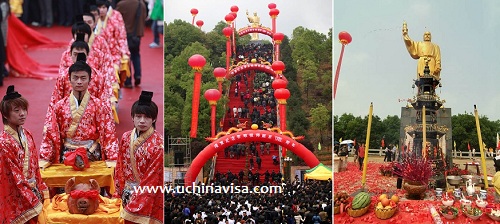 Chinese Beliefs: A Public Event - Worshipping Li Tian in Jiangxi
Chinese Beliefs: A Public Event - Worshipping Li Tian in Jiangxi
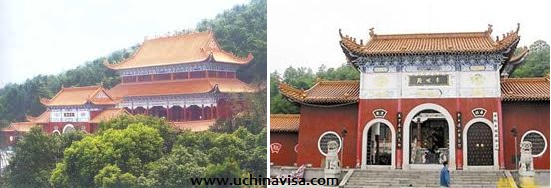 Li Tian's temples in Liling, Hunan province. It claims to be Li Tian' hometown
Li Tian's temples in Liling, Hunan province. It claims to be Li Tian' hometown
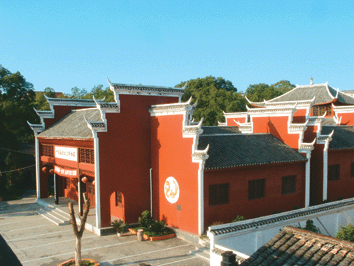 Li Tian's Temple in Liuyang, Hunan province, another place that claims to be Li Tian's hometown
Li Tian's Temple in Liuyang, Hunan province, another place that claims to be Li Tian's hometown
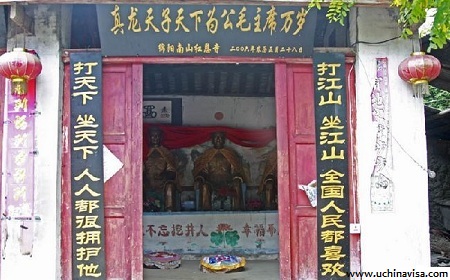 Mao Zedong's Temple in Mianyang, Sichuan Province
Mao Zedong's Temple in Mianyang, Sichuan Province
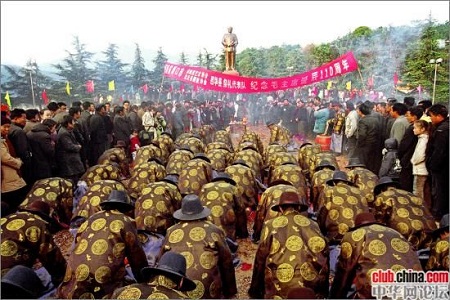 Mao worshipping in Shaoshan, Hunan Province, 2010.
Mao worshipping in Shaoshan, Hunan Province, 2010.
China Highlights


-- More ...
Inside China
- World Heritage Sites in China
- Chinese Traditions and Culture
- Chinese Holidays
- Chinese People
- Chinese Symbols
- Chinese Table Manners
- Chinese Lucky Numbers
- Famous People From ancient China
- Famous Chinese People since the 20th century
- Chinese Lunar Calendars
Chinese Traditions and Culture ![]() Ancient China Religion
Ancient China Religion ![]() Chinese Beliefs
Chinese Beliefs

New York Pass With More than 50 Sttractions

Southern California CityPASS saves you 32% for Disneyland, Universal Studios and 3 other attractions
